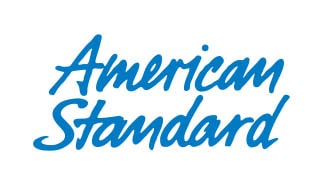Published on
January 10th, 2022Water Filtration Solutions to Remove Unwanted Substances and Protect Your Plumbing
As the owner or manager of a property in New York City, you probably have to deal with dirty or discolored water from time to time, especially if tenants complain about it. Fortunately, it’s relatively easy these days to remove unwanted substances from the water you and your tenants use to drink, bathe, and clean. A great bonus to using water filtration solutions to do this is you will also be protecting your plumbing. Here’s the information you need about why water filtration is a good investment and what type of filter is best for your property.
The Benefits of Systemic Filtration vs. Point-of-Use Filters
Comprehensive filtration for greater efficiency and protection
You’ve probably seen point-of-use filters that attach to faucets to clean water. These are typically used to make drinking water healthier and better tasting. While there’s nothing inherently wrong with these POU filters, they have a few downsides:
- They are designed to only remove certain impurities from water.
- They are typically used in kitchen and bathroom sinks and don’t remove unwanted elements from the shower or bathtub.
- They are not practical or cost-effective to install in large rental properties.
- They don’t protect your plumbing like their whole-house counterparts.
The last item is a key reason why we at Sanitary Plumbing usually recommend comprehensive filtration versus spot filters. Whole-house filters are installed upstream from your water distribution points, meaning all your pipes and plumbing components, as well as your appliances, are protected from unwanted material like rust and sediment that can block pipes and clog valves.
Think of it like using an antibiotic. If you apply an antibiotic cream to your skin, you only treat the location where you apply it. But if you take an oral antibiotic, it treats your entire body, wherever unwanted pathogens lurk.
Types of Water Filters
Carbon filters
If your water has a chlorine odor or taste (chlorine is added as a disinfectant in New York), a carbon filter may be a good choice. You can also remove many pesticides and herbicides, which are sometimes present in trace amounts, with a carbon filter.
Carbon filters use a process called adsorption to operate. Water coming into your property first passes through activated carbon, which traps impurities. To remove chlorine’s cousins, chloramines, catalytic carbon is sometimes used instead of activated carbon.
Sediment filters
Because New York City has some of the oldest pipes in the nation, sediment can be a problem for property owners. Sediment filters are an ideal fix, as they remove rust, dirt, clay, and sand from the water supply. This type of filter is also popular with rural dwellers who face the same contaminants in their well water. It has been around since the Ancient Mayans, although of course perfected for modern use since then.
Sediment filters are mechanical filters, not chemical ones. Water moves through small pores that catch unwanted material before it travels to taps and appliances. The beauty of sediment filters is they can be used in virtually any property and can be combined with other types of filters for even greater cleansing of water.
Sediment filters are the kind we most often suggest for our clients in New York City who dislike discolored or dirty-looking water. We know they don’t just make their water look and taste better. These are the most protective filters when it comes to extending the life of a plumbing system, from shower valves to hot water boilers.
Ultraviolet filters
Ultraviolet light kills certain living organisms, especially pathogens such as bacteria, viruses, fungi, and parasites. It does this by damaging the DNA of these microorganisms so they cannot reproduce. With recent concerns about virus transmission in New York City and around the world, ultraviolet filters are growing in popularity. Like sediment filters, ultraviolet filters can be added to other filtration for more comprehensive water cleansing.
Acid neutralizers
New York City water tends to be slightly alkaline – just above the neutral point of 7 on the pH scale. However, water can be more acidic (below a pH of 7) in places where rainwater or other sources affect well water. Acid neutralizers use calcite to make water more alkaline, which is desirable because it causes less corrosion and damage to metal plumbing.
Water Softeners
Water in New York City is overwhelming on the moderately soft side, meaning it has a lower level of calcium- and magnesium-based compounds that can accumulate in plumbing and form mineral scale, which narrows pipes, wrecks valves, and clogs spigots. However, according to a recent Department of Environmental Protection report, there are a few spots where water from the Croton water supply enters the city, and it’s assessed as moderately hard. In this case, a water softener may be needed.
Water softeners trap unwanted minerals with salts or resin beads to exchange ions with them and render them harmless in your water. If you notice lime buildup on your taps, difficulty getting soap to foam, or a dingy film on your laundry, you may have hard water. Hard water can also be damaging to plumbing, like sediment, so you don’t want to hesitate to deal with it.
Do you have brown, rusty, gritty, smelly, or bleach-y water? Have you noticed your appliances or plumbing fixtures aren’t working properly? Don’t wait until your plumbing pays the price, especially if sediment is a problem. Contact Sanitary Plumbing to discuss a filtration system for your home or apartment building. You can reach us at 212-734-5000, or use our online contact form to set up an appointment for further discussion and assessment of your water problems.








